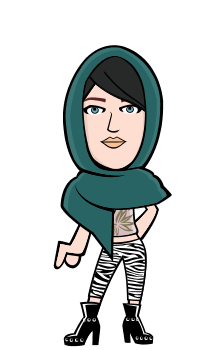 Deductive and Inductive Reasoning
Deductive and Inductive Reasoning
Deductive Reasoning:
Deductive reasoning is reasoning where true premises develop a true and valid conclusion. In the case of deductive reasoning, the conclusion must be true if the premises are true. Deductive reasoning uses general principles to create a specific conclusion. It is also known as 'top-down reasoning' because it goes from general and works its way down more specific.
For example:
All cars have engine.
I have a car.
My car has engine.
For deductive reasoning to be sound, the hypothesis must be correct. It is assumed that the premises, "All cars have engine" and "I have a car" are true. Therefore, the conclusion is logical and true.
We know that the conclusion is true because it is based on generalized premises that are true without any exceptions. As long as the premises are true, then the conclusion will also be true.
Arguments:
Arguments in deductive logic are either valid or invalid. Invalid arguments are always unsound. Valid arguments are sound only if the premises they are based upon are true.
Validity:
Conclusions can be proven to be valid if the premises are known to be true.
With deductive reasoning, arguments may be valid or invalid, sound or unsound. If the logic is correct, i.e. if the conclusion flows from the premises, then the arguments are valid. However, valid arguments may be sound or unsound. If the premises used in the valid argument are true, then the argument is sound otherwise it is unsound.
Inductive Reasoning:
Inductive reasoning is reasoning where the premises support the conclusion. The conclusion is the hypothesis, or probable. This means that the conclusion is the part of reasoning that inductive reasoning is trying to prove. Inductive reasoning is also referred to as 'the cause and effect reasoning' or 'bottom-up reasoning' because it seeks to prove a conclusion first. This is usually derived from specific instances to develop a general conclusion and makes broad generalizations from specific observations.
Even if all of the premises are true in a statement, inductive reasoning allows for the conclusion to be false.
For example:
Harold is a grandfather.
Harold is bald.
Therefore, all grandfathers are bald.
These specific instances are not representative of the entire population of grandfathers. Because inductive reasoning is based on specific instances, it can often produce weak and invalid arguments. The conclusion does not follow logically from the statements.
Arguments:
Arguments in inductive reasoning are either strong or weak. Weak arguments are always uncogent. Strong arguments are cogent only if the premises they are based upon are true.
Validity:
Conclusions may be incorrect even if the argument is strong and the premises are true.
Cogent and Uncogent Arguments:
Strong arguments are ones where if the premise is true then the conclusion is very likely to be true. Conversely, weak inductive arguments are such that they may be false even if the premises they are based upon are true.
If the argument is strong and the premises it is based upon are true, then it is said to be a cogent argument. If the argument is weak or the premises it flows from are false or unproven, then the argument is said to be uncogent.



